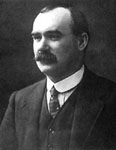 | James Connolly: After being jailed for attending a public demonstration in support of labor strikes, Connolly went on a hunger strike in September of 1913. After a week, he was released, setting a precedent for later strikes. |
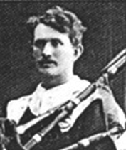 | Thomas Ashe: The President of the IRB, Ashe had been arrested after making a seditious speech during an anti-conscription meeting. While serving 2 years in Mountjoy Prison, Dublin, he joined a strike which demanded free association, which commenced on the 20th of September 1917. Ashe died on the 25th of September 1917 after being brutally force-fed. On the 29th of September, the prisoners were told that they would be treated as prisoners of war and accorded pow rights, and after 10 days, the strike was called off. |
In the fall of 1920, during the Tan War, the British had withdrawn political status, which had been won after the death of Thomas Ashe in 1917 and after the 2-week mass hunger strike in Mountjoy Jail in April of 1920. On the 11th of August, a mass strike was once again initiated, this time in Cork Jail, when 60 IRA members, most of whom were held without charge or trial, demanded reinstatement of political status and release. The British, having hardened their attitude against status following the April strikes, opted to risk the deaths of pows rather than make concessions. In the weeks that followed, the British released or transferred many of the 60 until only 11 were left. Three of these were Terence McSwiney, (who had joined the strike on the 12th of August, the day after it had begun) Michael Fitzgerald, and Josephy Murphy. On the 16th of August, McSwiney was sentenced to 2 years but said his strike would continue, and he was deported to Brixton that very night. Following McSwiney's death, the hunger strike in Cork Jail continued for a further three weeks, and following a request from Arthur Griffith, acting President of the Irish Republic, the remaining nine prisoners on hunger strike ended their fast on 12 November 1920. | |
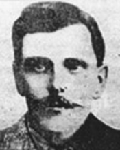 | Michael Fitzgerald: A volunteer in the IRA, Fitzgerald died on the 17th of October 1920 in Cork Jail, on strike 67 days |
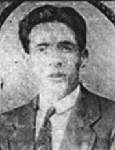 | Joseph Murphy: Died 25 October 1920 in Cork Jail, on strike 76 days, buried in the Republican Plot in St. Finbarr's Cemetery in Cork. |
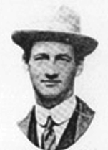 | Terrence McSwiney: Sinn Fein Lord Mayor of Cork City and Brigade Commandant 1st Cork Brigade Irish Republican Army. In an effort to isolate him from the other prisoners, he was deported from Cork Jail to Brixton Prison, London, and died at 5:40am, within hours of Murphy's death, on 25 October 1920 after being on strike 74 days |
In Feb of 1923, 23 members of Cumann na mBan (including Mary and Annie MacSwiney, Lily Brennan and Nellie Ryan, sister-in-law of the Free State's Commander-in-Chief and Defence Minister Richard Mulcahy) went on strike for 34 days over illegal arrest and imprisonment without trial of prisoners. The strike resulted in the release of the women hunger-strikers. On 23 May 1923, the Irish Civil War officially ended, but the state continued to go after republicans, keeping 12,000 men and women in prison and persecuting and harrassing countless others. By October of 1923 tension was at an all-time high in the prisons and camps because of conditions and with no release in sight. On 13 October 1923, Michael Kilroy, OC of the IRA pows in Mountjoy, announced a mass strike by 300 prisoners, and it soon spread to other jails, and within days 7,033 republicans were on hunger strike. The figures given by Sinn Féin at the time were Mountjoy Jail 462; Cork Jail 70; Kilkenny Jail 350; Dundalk Jail 200; Gormanstown Camp 711; Newbridge Camp 1,700; Tintown 1,2,3, Curragh Camp 3,390; Harepark Camp 100; and, 50 women in the North Dublin Union. Previously, the Free State Government had passed a motion outlawing the release of prisoners on hunger strike, and Dan Downey and Joseph had died before the October strike. However, because of the large numbers of republicans on strike, at the end of October they sent a delegation to Newbridge Camp to speak with IRA leaders there. It soon became apparent that they were not there to negotiate the strikers' demands, but rather to give the prisoners the government's message: "we are not going to force feed you, but if you die we won't waste coffins on you; you will be put in orange boxes and you will be buried in unconsecrated ground." The negotiations were abandoned and the strike went forward. Poorly planned, within weeks many were going off strike, and in Cork those who went off strike said they'd been promised that 33 of their comrades would be released within 48 hours and the rest within 3 weeks. By the end of October, there were still 5,000 on strike. With the deaths of Barry and Sullivan drawing no positive response or concessions from the Free State government, the IRA command ordered the strikes ended on the 23rd of November. While the strike itself failed to win releases, it did begin a slow start of a programme of release of prisoners, the state being worried about the political impact of more deaths, though some prisoners remained in jail until as late as 1932. Lack of adequate medical attention given to strikers, health complications from the strikes, and the deplorable conditions in which the prisoners were held led to the untimely deaths shortly after the strikes of many, including May Zambra and Joe Lacey. | |
 | Dan Downey: Died in Curragh's Hospital Wing on 10 June from the effects of an earlier hunger strike |
 | Joseph Witty: Aged 19, died on strike on 2 September 1923 in Curragh Camp. |
 | Denis "Dinny" Barry: From Blackrock, County Cork, Commandant Barry was a veteran of 1916 and O/C for the republican police in Cork's Ist Brigade area. Not convicted of any crime, he died on strike in Newbridge Camp, 20 November 1923, after 34 days on strike. Buried in the Republican Plot in St Finbar's Cemetery. |
 | Andrew Sullivan: From County Cork, died on 22 November 1923 after 40 days on strike. Buried in Mallow Cemetery. |
IRA pow's begin strike in Mountjoy for better conditions and political status -- Tony D'Arcy, Jack McNeela, Tomas MacCurtain, Michael Traynor, Thomas Grogan, Jack Plunkett and John Lyons. | |
 | Tony D'Arcy: From Galway, D'Arcy was sentenced to three months for refusing to account for his movements and for not giving his name and address when arrested. Died 16 April 1940 in St Bricins Military Hospital, Dublin, after 52 days on strike. |
 | Jack "Sean" McNeela: from Mayo, McNeela was sentenced to two years for "conspiracy to usurp a function of Government" by operating a pirate radio station. Died 19 April 1940 in Arbour Hill Military Detention Barracks, Dublin, after 55 days on strike. |
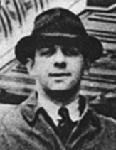 | Sean McCaughey: Sentenced to death for having detained and assaulted Stephen Hayes, ex-Chief-of-Staff of the IRA and a self-confessed informer, his sentence was commuted to life. After serving 5 years in Portlaoise in brutal and inhuman conditions, he started his strike on 19 April 1946. After 16 days, he stopped taking water and died on the 23rd day of his strike, 11 May 1946 |
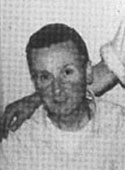 | Billy McKee: One of the founders of the Provisional Movement in 1970, leader of the 32-day hunger strike in 1972 which started 15 May and ended 19 June in Crumlin, Belfast. Forty prisoners took part. This strike ultimately forced Britain to give special category status for prisoners affiliated to paramilitary organisations in all camps, not just Long Kesh. It was the revocation of this status that led to the 1980 and 1981 strikes. |
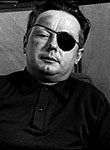 | Sean MacStiofain: IRA chief-of-staff at the time of his arrest, went on hunger strike for 57 days in 1973. |
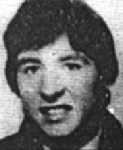 | Michael Gaughan: Died 3 June 1974, 64 days Parkhurst Prison, England |
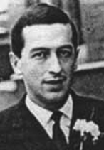 | Frank Stagg: Died 12 February 1976, 62 days Wakefield Prison, England |
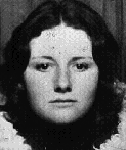 | Marion Price: On Strike 213 days until 8 June 74 force-fed 166 days |
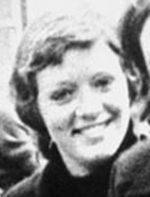 | Dolours Price: On Strike 213 days until 8 June 74 force-fed 166 days |
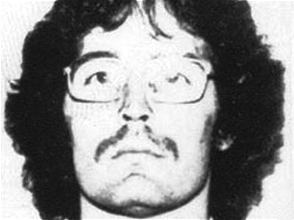 | Gerald Kelly: Force fed for 205 days |
 | Hugh Feeney: Force fed for 205 days |
 | Willie Gallagher: 20 years of age, from Strabane, Gallagher, an IRA volunteer at the time and serving 12 years, began a self-imposed water-only strike to protest his innocence. Near death, he broke it off on 29 August 1978 after 48 days. Strabane trade union officials said they would plan protest strikes in support of Gallagher's pleas of innocence. Two US congressmen had also intervened, arguing that pow status should be restored to prisoners. |
To protest convictions received solely on the word of supergrass Harry Kirkpatrick, all 27 INLA prisoners vow to go on rolling hunger strike, 1 a week, demanding expedited appeals and an end to the use of court testimony from uncorroborated police informers. On 18 December 1985, immediately following their conviction, INLA volunteer Robert Tohill announced the start of the strike before being dragged out of the courtroom:
"As from tomorrow I shall be on a hunger strike to the death, as will the rest of the defendants, to prove our innocence and to prove the blatant injustice to our people." At strike's end almost three weeks later, the state said no concessions had been made, yet by Christmas of 1986, 24 of those convicted on the word of Kirkpatrick had been released, their convictions quashed, and the debate was started to end the use of supergrasses. | |
 | Robert Tohill Volunteer, INLA Aged 26 19 Dec 85-6 Jan 86 19 days |
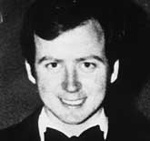 | Gerard Steenson Volunteer, INLA Aged 27 26 Dec 85-6 Jan 86 12 days |
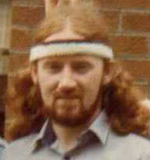 | Thomas "Ta" Power Volunteer, INLA Aged 32 2 Jan-86-6 Jan 86 5 days |
In Portlaoise Prison, Ireland, INLA prisoners struck in demand for "parity of treatment" with IRA inmates regarding compassionate parole, stating that they were regularly denied compassionate parole regardless of circumstances, while IRA prisoners were released "if their granny has the flu." After refusing to enter into talks to end the strikes for nearly a month, the Department of Justice finally entered into negotiations with the IRSP (through intermediary Father Alex Reid of Clonard Monastery in Belfast), and hours later the three remaining prisoners ended their strike after being promised talks with the government on the issue of "parity of treatment". | |
 | Michael "Mickey" McCartney Aged 37, Dundalk 5 Aug-1 Sept 95 26 days |
 | James Gorman --, Dundalk 5 Aug-11 Aug 95 6 days (complications from peptic ulcer) |
 | Tony McNeill --, Belfast 13 Aug-1 Sept 95 19 days |
 | Paddy Walls --, Dundalk 13 Aug-1 Sept 95 19 days |